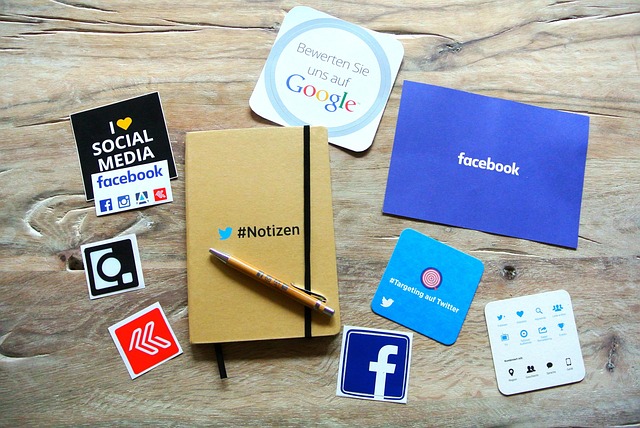Implementing an AI chatbot for ecommerce improves customer support with instant, personalized assistance 24/7. Using NLP and machine learning, these chatbots handle product queries, streamline purchases, and foster satisfaction, allowing human agents to focus on complex issues. Key features include seamless CRM integration, sentiment analysis, and automated query handling. Success metrics like customer satisfaction, conversion rates, and engagement levels should be monitored for fine-tuning responses based on user needs.
In today’s digital era, integrating AI chatbots into ecommerce platforms offers a game-changing opportunity to enhance customer experience. This article explores best practices for deploying AI chatbots for ecommerce, focusing on understanding unique customer needs, selecting robust technology with intuitive features, and implementing seamless design and training strategies. We’ll also delve into measuring success through performance evaluation metrics tailored for AI chatbot interactions, ensuring optimal value for your business.
- Understanding Ecommerce Customer Needs for AI Chatbot Integration
- Selecting Right AI Chatbot Technology and Features
- Seamless Implementation: Design and Training Strategies
- Measuring Success: Evaluating AI Chatbot Performance in Ecommerce
Understanding Ecommerce Customer Needs for AI Chatbot Integration

In today’s digital era, understanding customer needs is paramount for any successful ecommerce venture. When integrating an AI chatbot for ecommerce, businesses must delve into the unique pain points and preferences of their online shoppers. Customers increasingly expect instant, personalized assistance, making ai sales chatbots a game-changer. These virtual assistants can provide 24/7 support, offering product recommendations, answering FAQs, and even facilitating purchases with minimal human intervention.
By leveraging AI chatbot for ecommerce, businesses can enhance the overall shopping experience, fostering customer satisfaction and loyalty. A well-designed sales chatbot can navigate complex product catalogs, understand natural language queries, and offer tailored suggestions based on user behavior. This not only improves customer engagement but also allows human agents to focus on more complex issues, ensuring efficient and effective support throughout the entire ecommerce journey.
Selecting Right AI Chatbot Technology and Features

When deploying an AI chatbot for ecommerce, selecting the right technology and features is paramount. It’s crucial to consider factors such as natural language processing (NLP) capabilities, machine learning algorithms, and integration with existing customer relationship management (CRM) systems. The ideal AI chatbot for ecommerce should offer seamless interaction through various channels like websites, mobile apps, and messaging platforms, providing a unified shopping experience.
Additionally, look for features like personalized product recommendations based on user interactions and historical data, as well as the ability to handle complex queries and tasks. Chatbot automation, when implemented effectively, can enhance customer support, reduce response times, and improve overall satisfaction. In terms of functionalities, an advanced ecommerce AI should also include sentiment analysis to gauge customer emotions, enabling businesses to address issues promptly and turn potential negative experiences into positive ones.
Seamless Implementation: Design and Training Strategies

When deploying an AI chatbot for ecommerce, seamless implementation is key to enhancing customer experience and driving sales. Design strategies should prioritize intuitive user interfaces, ensuring customers can effortlessly interact with the chatbot much like they would a human agent. This involves creating conversational flows that mimic natural language exchanges, addressing common queries and tailoring responses based on individual shopping behaviors.
Training algorithms with diverse datasets, encompassing a wide range of customer inquiries and nuances in language usage, is crucial for accurate AI chatbot for ecommerce performance. Utilizing advanced machine learning techniques enables the ai agent to continuously learn and adapt, improving its ability to handle complex interactions. Leveraging the expertise of a specialized ai automation agency can significantly streamline this process, providing customized training programs tailored to specific business needs and ensuring optimal chatbot automation outcomes.
Measuring Success: Evaluating AI Chatbot Performance in Ecommerce

Measuring success is a crucial aspect when deploying an AI chatbot for ecommerce. Evaluating its performance involves setting clear KPIs and defining success metrics tailored to your business goals. Key performance indicators (KPIs) like customer satisfaction scores, conversion rates, and average order value can help gauge the chatbot’s effectiveness in enhancing user experience and driving sales.
An ai automation agency often recommends tracking engagement metrics, such as chat volume and average session length, to understand how actively customers are interacting with the chatbot. Additionally, monitoring bounce rates and time spent on site can provide insights into customer satisfaction and the chatbot’s ability to guide users towards desired actions. By regularly analyzing these metrics, you can fine-tune your AI assistant’s responses and interactions, ensuring it remains aligned with customer needs and contributes to the overall success of your ecommerce platform.
Implementing an AI chatbot for ecommerce is a strategic move that can significantly enhance customer experience and drive sales. By understanding specific customer needs, selecting advanced yet user-friendly technology, ensuring seamless integration through thoughtful design and training, and continuously measuring performance, businesses can unlock the full potential of AI chatbots. These best practices foster effective communication, provide personalized assistance, and ultimately boost ecommerce success rates.
